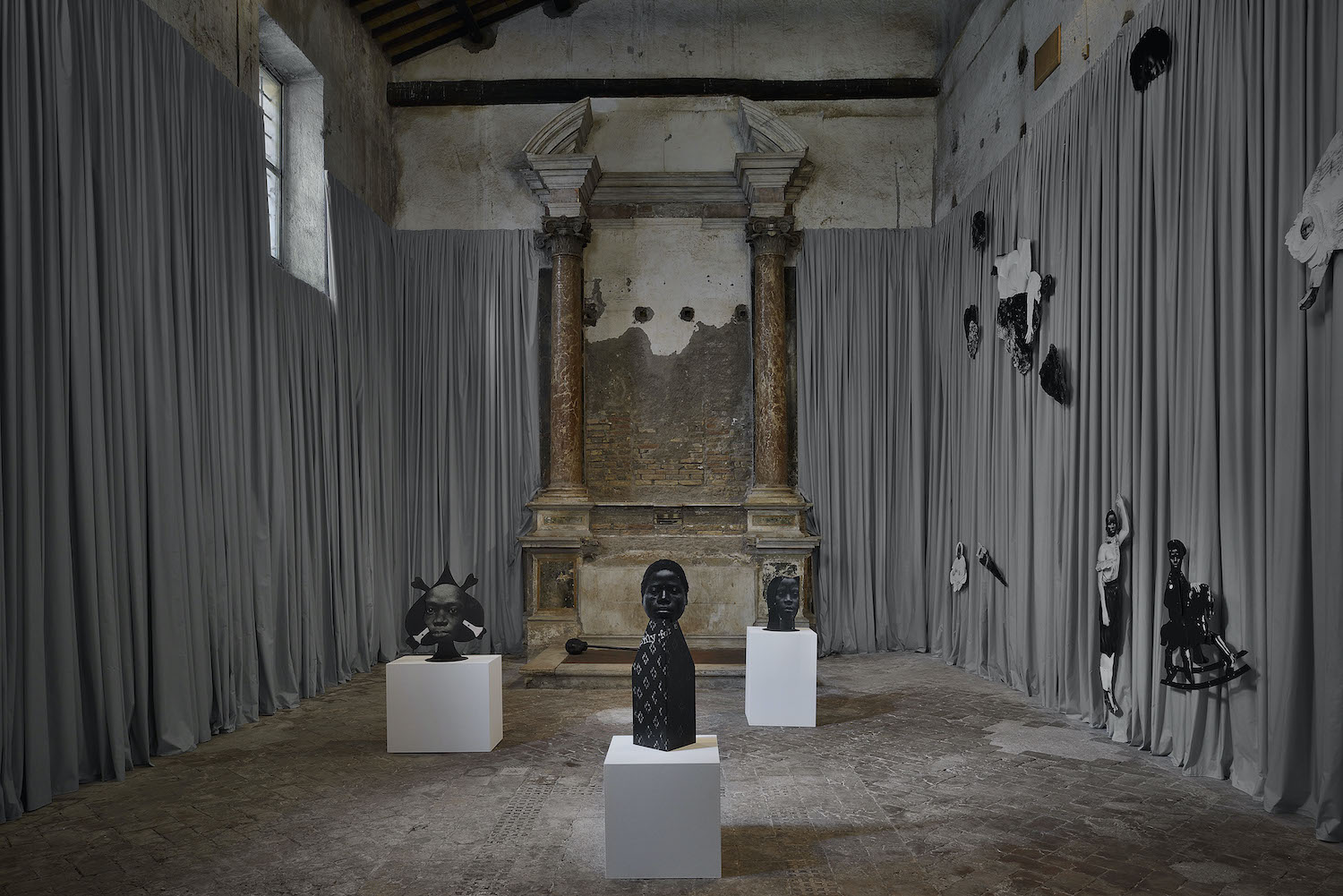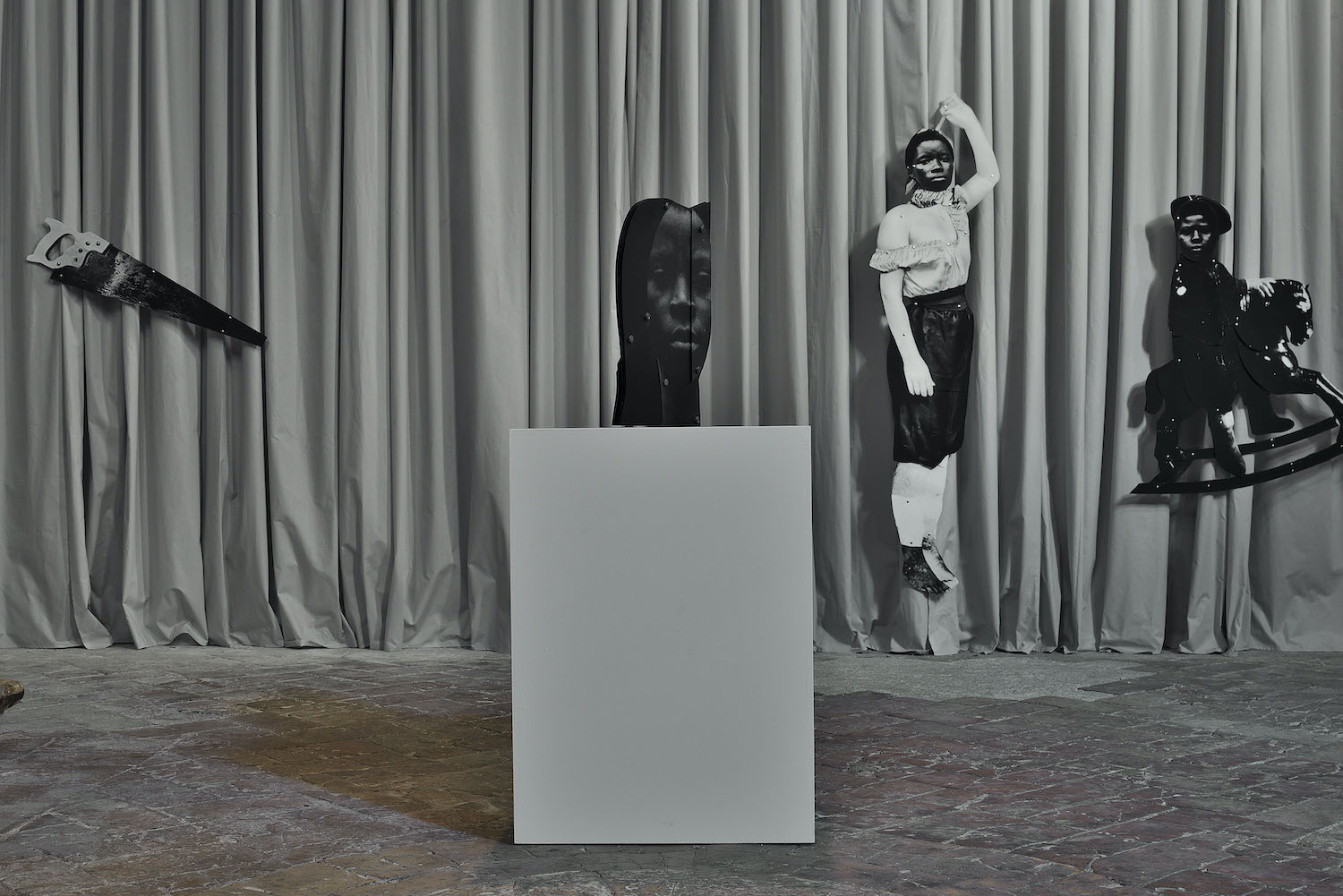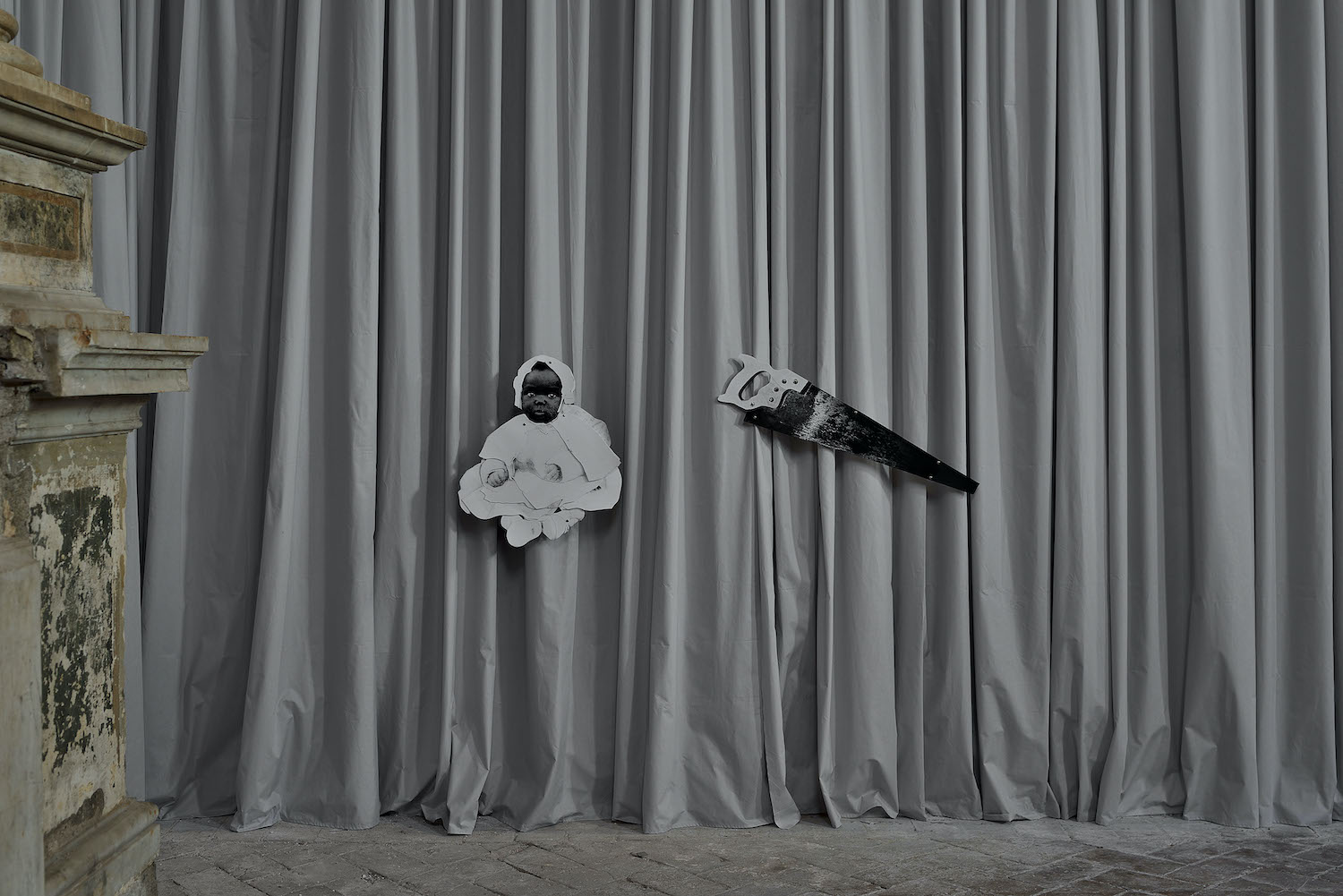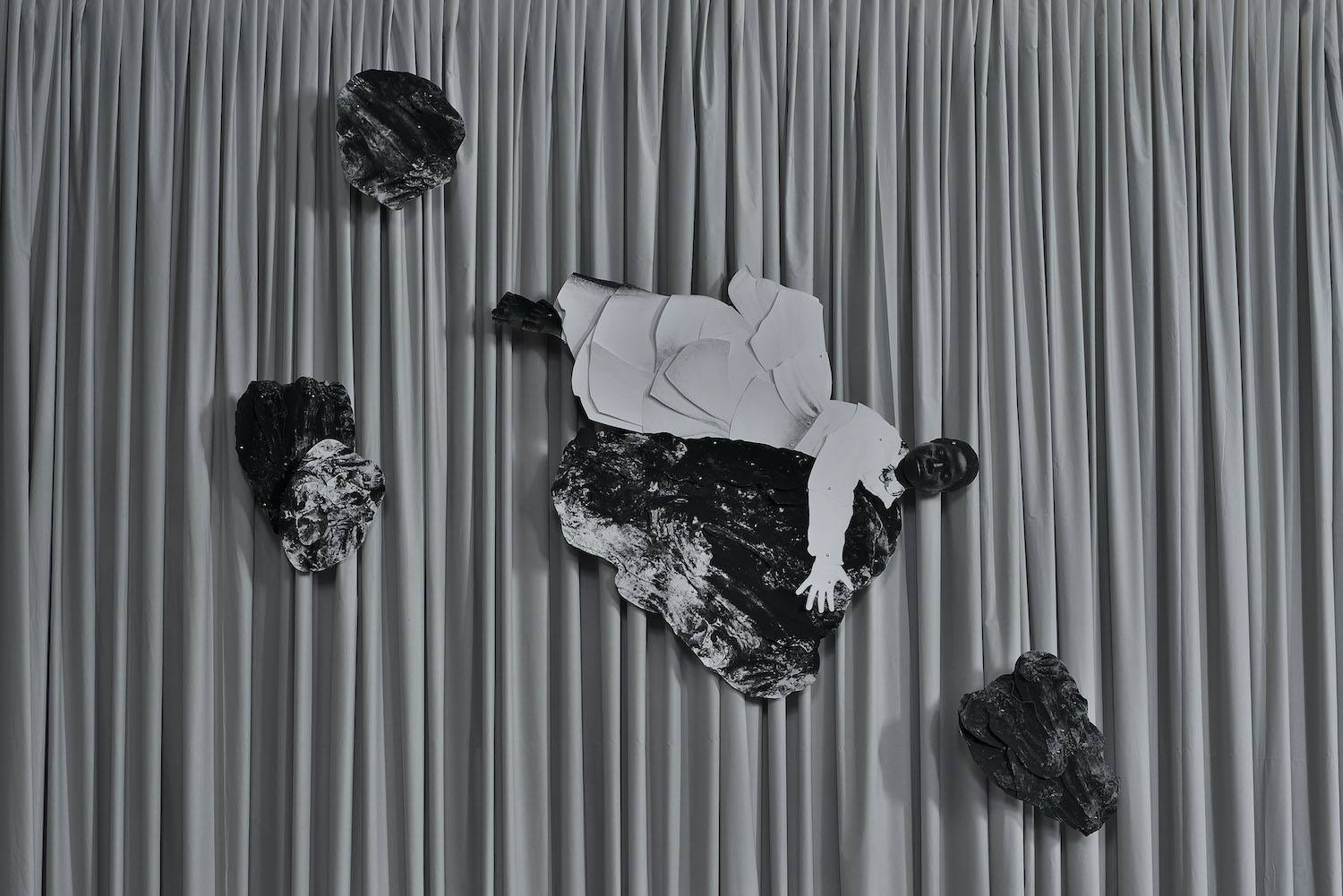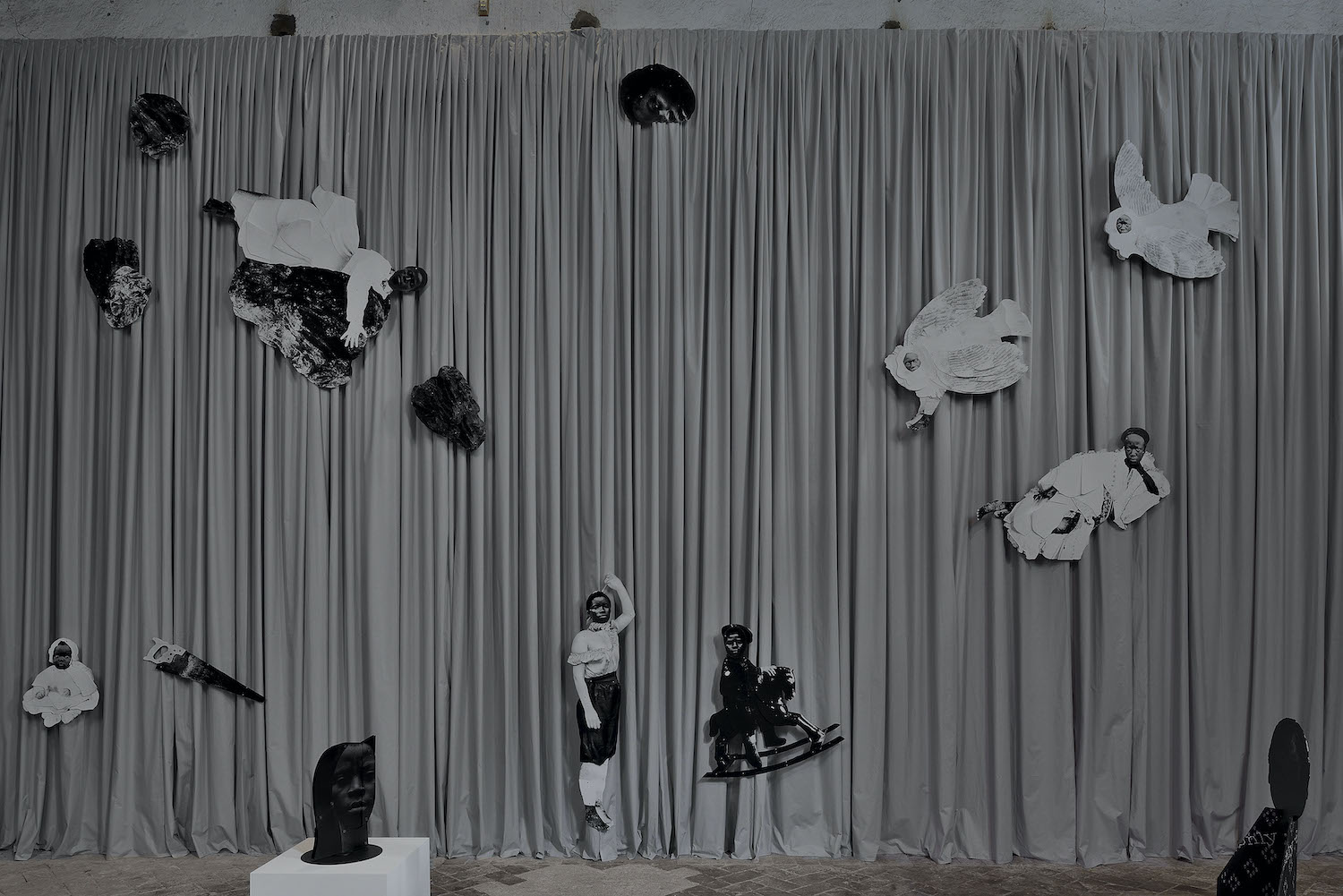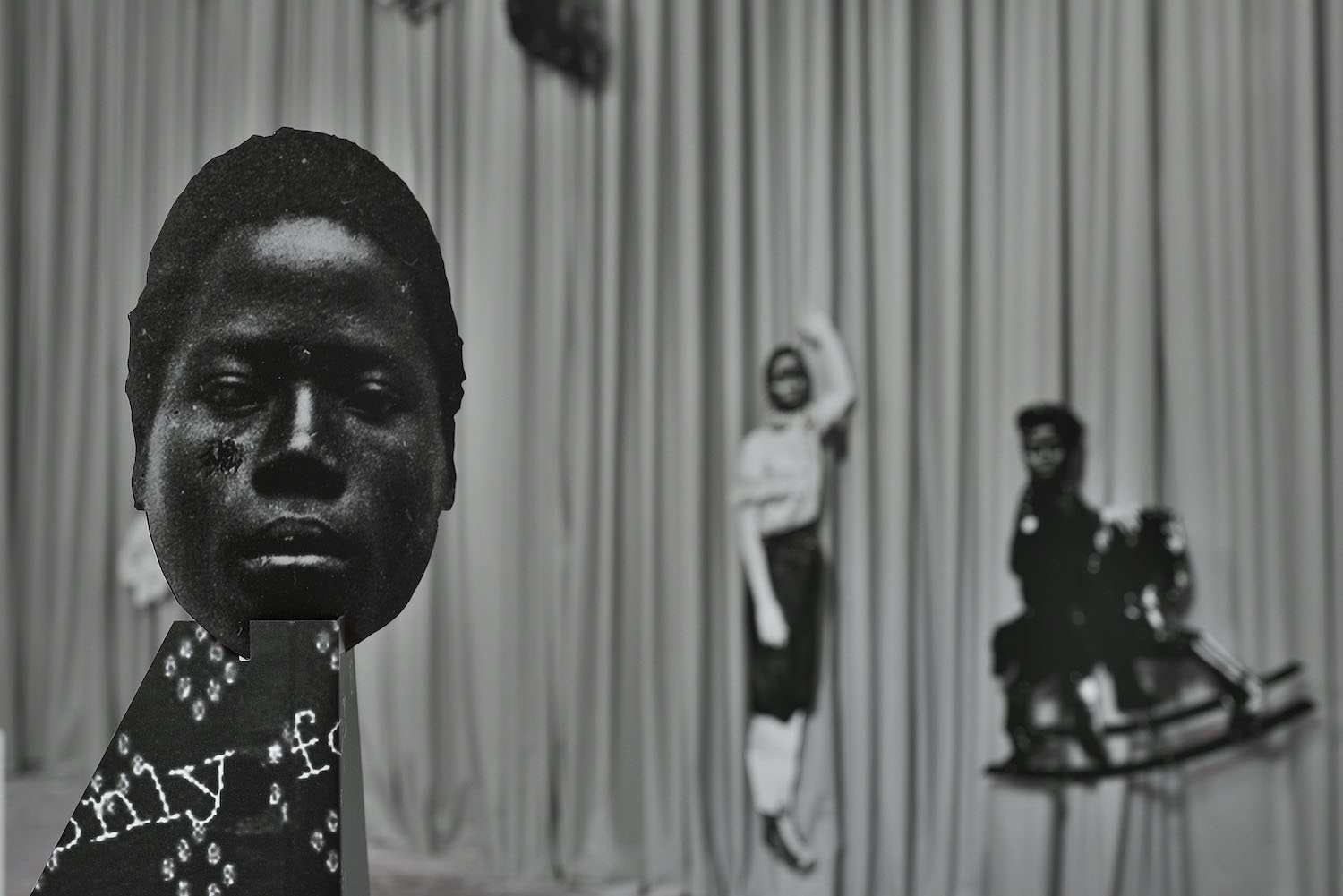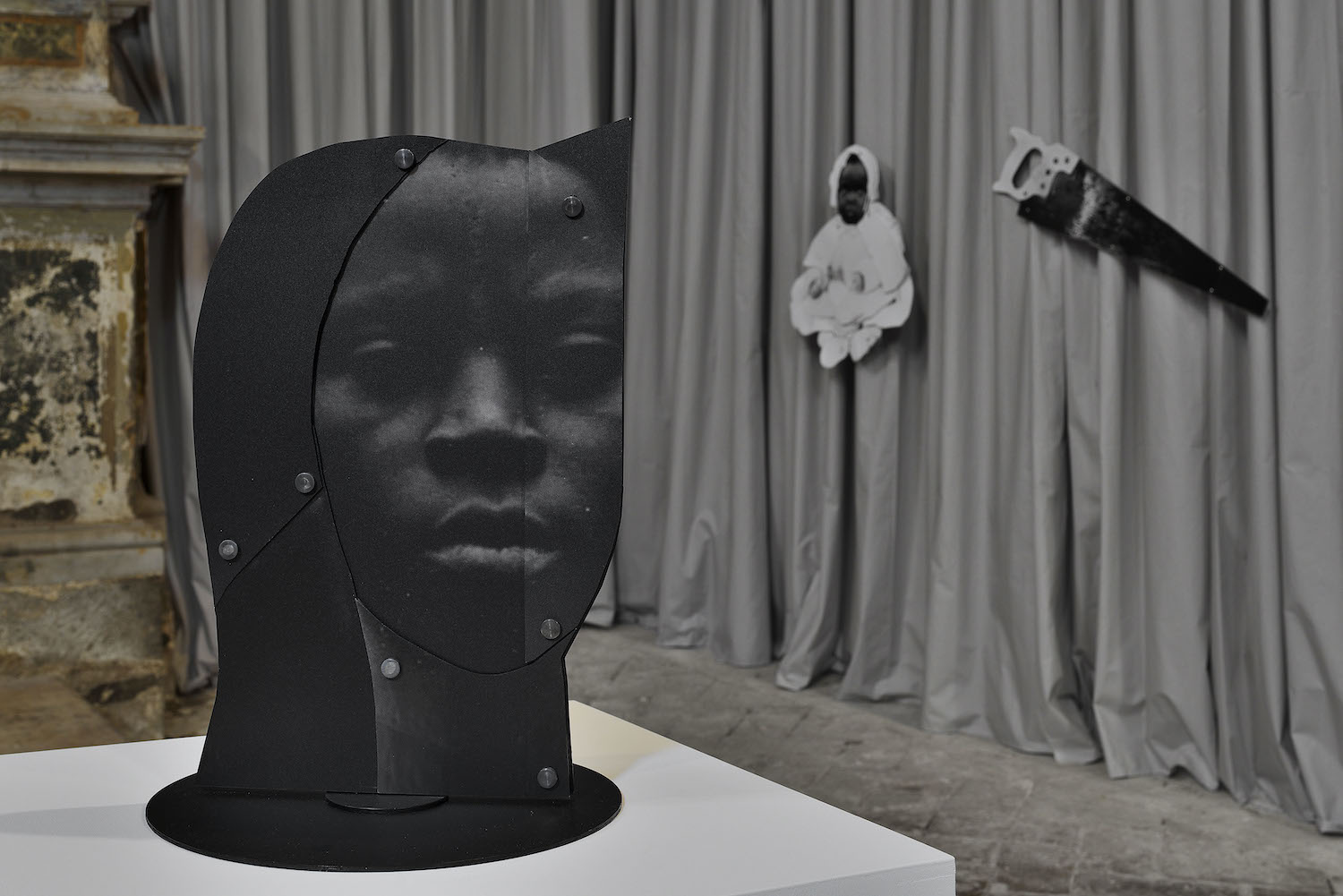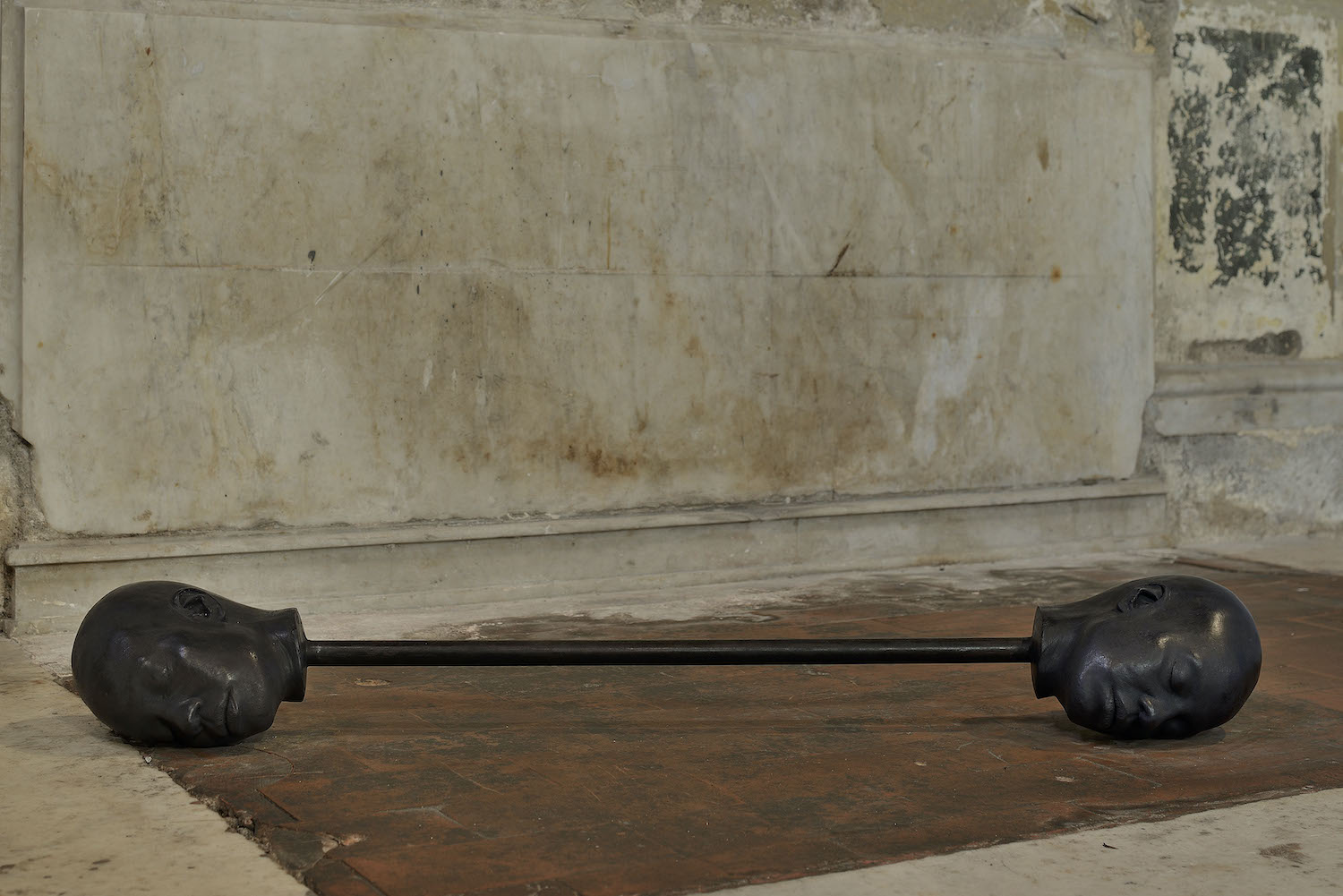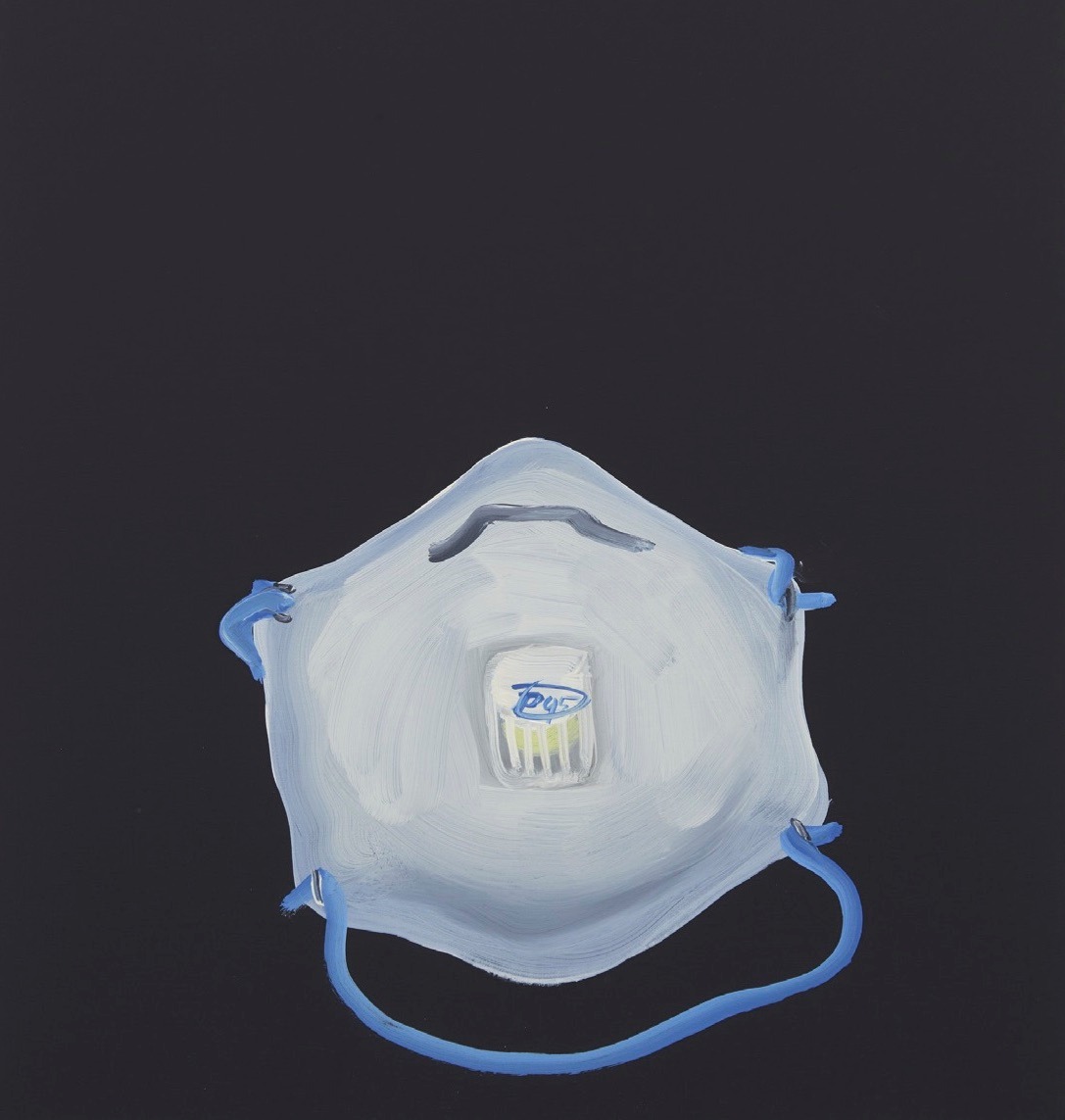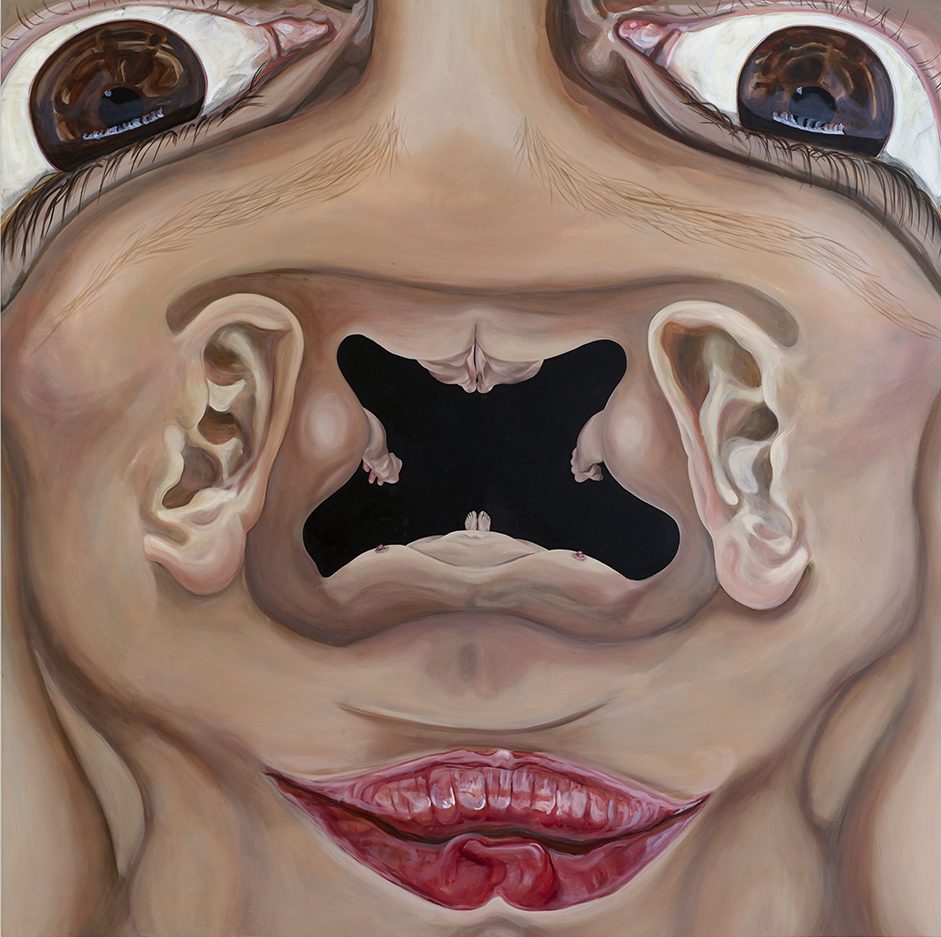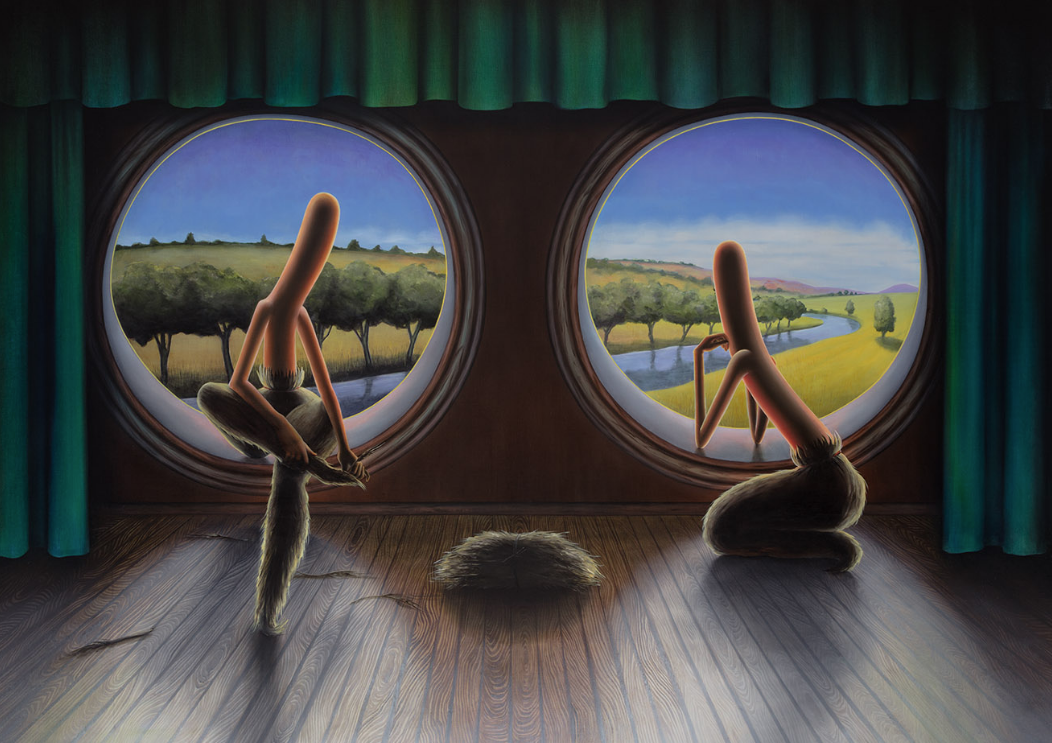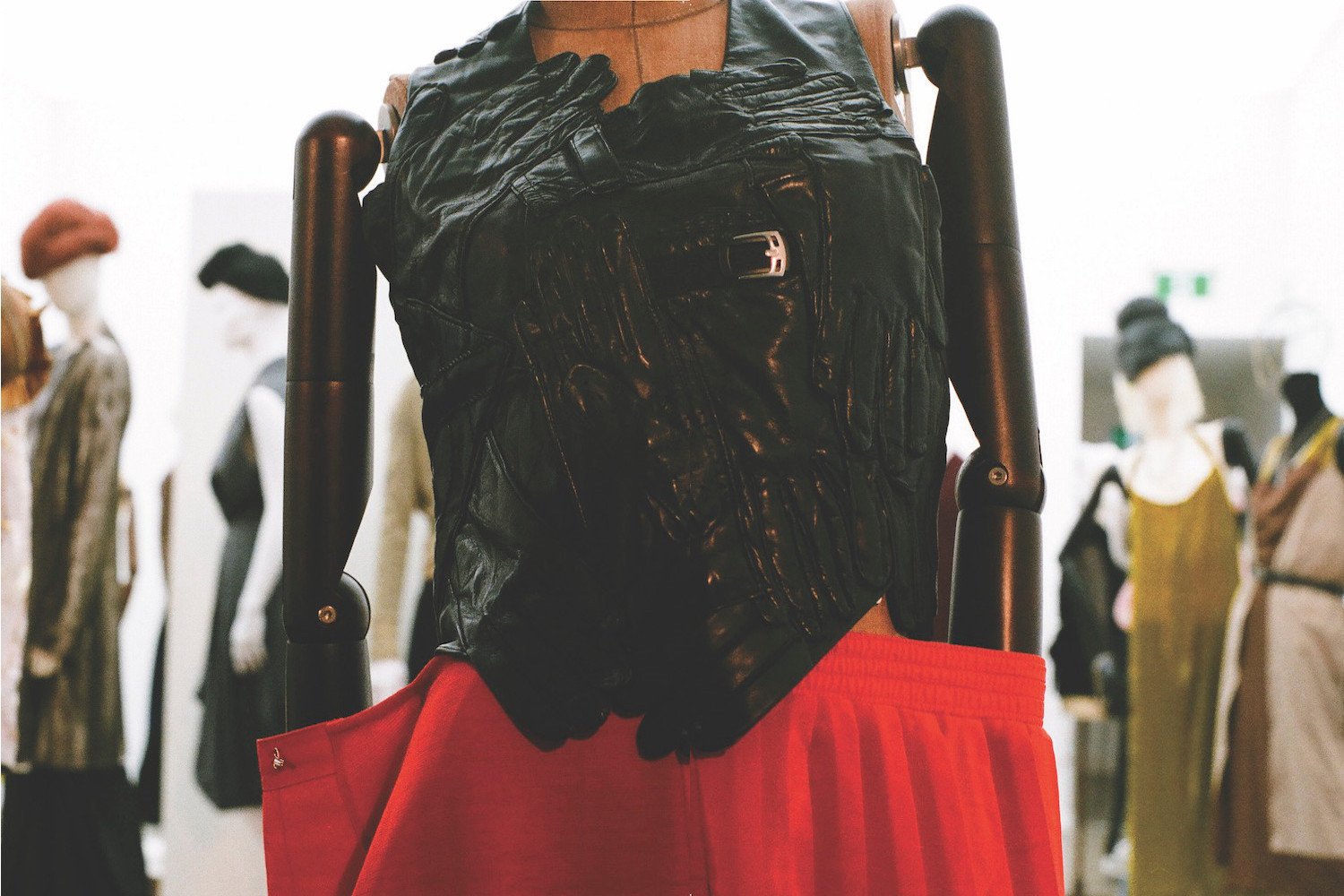Frida Orupabo’s imagery is both archival and personal — blurring the line between the two, if such a division exists. At Gavin Brown in Rome, however, the artist’s collaged elements make up a living, human-size diorama in which to question image, structure, race, and subjecthood.
A light-gray curtain covers most of the wall space of the gallery, revealing bare stone walls above and framing high windows and an empty altar. The space, a former church that otherwise feels medieval, mysterious, and raw, is softened by these perfectly symmetrical folds of fabric that ripple across its walls. There is a sense of warmth, like a drawing room filled with puzzling, disturbing, beautiful images and objects. Three screen-printed aluminum sculptures are positioned atop white block pedestals in the center of the space; they are busts that stare back at the viewer, regulating the space. On the altar itself is a barbell with a resin head at each end. This is the face of the artist herself, but one face among many in this installation of selves that have lived, could have lived, are to be lived. On the east wall are the remaining eight self-portraits: aluminum figures covered with layers of photo paper, pinned with what look like metal thumb tacks, at once implying motion and the inability to move independently, like marionettes or a child’s paper doll. One image is a baby, another a singular head looking down upon the rest of the works. A number of the pieces are flying: downward via the force of a weighted rock; or skyward upon fluttering, feathery white wings. Beside these winged creatures is a lounging woman dressed in what appears to be many layers of an elegant kaftan or robe. In this pose she recalls Manet’s painting of Jean Duval: Baudelaire’s Mistress, Reclining (1962).
Using archival images as self-portraiture, Orupabo activates Édouard Glissant’s claim that “in relation every subject is an object and every object a subject.” Images once used to objectify are reclaimed in subjecthood, in the creation of self; it is a self in progress, in motion, in dialogue with us all.

